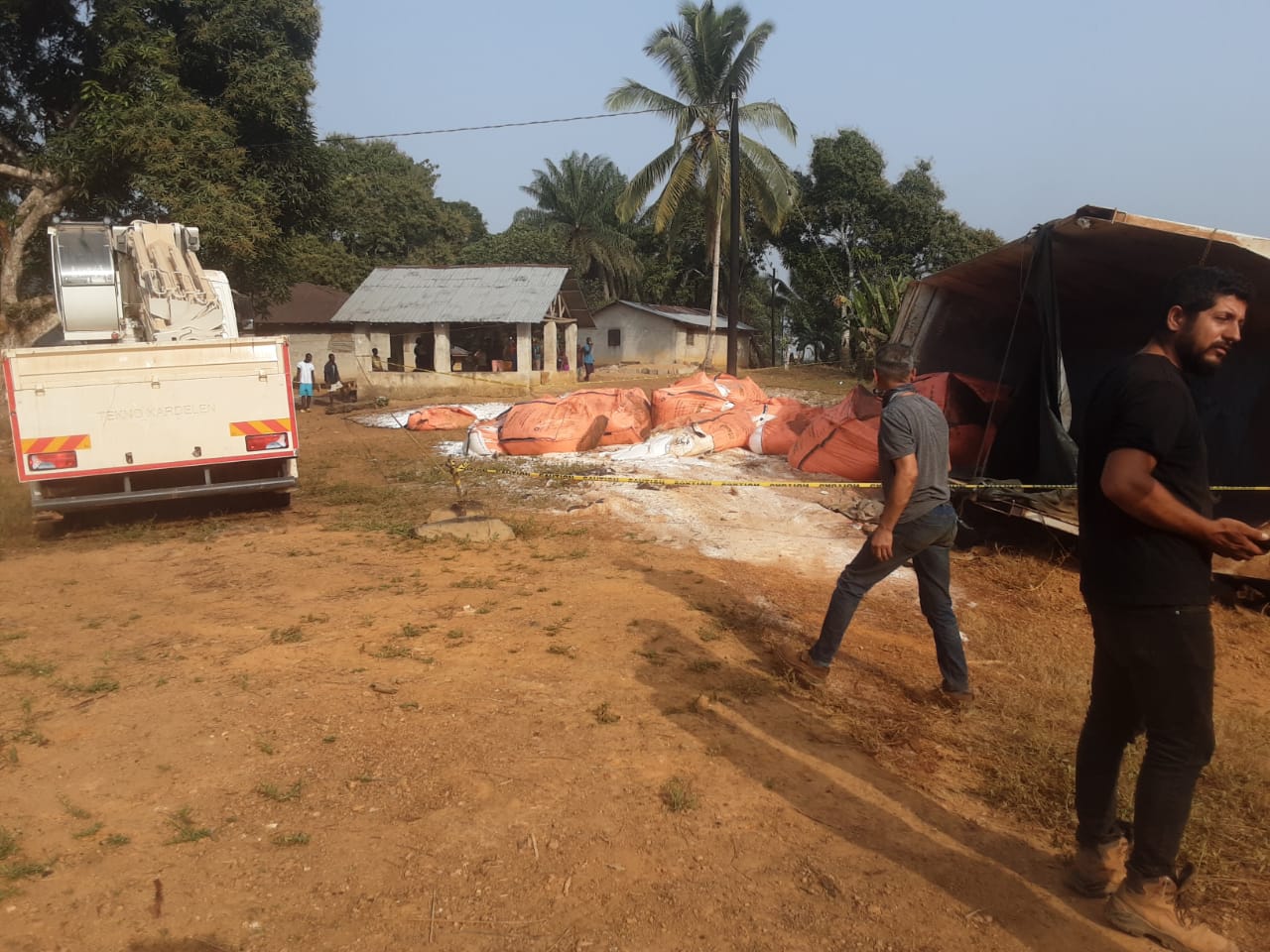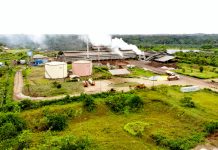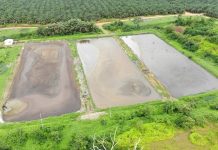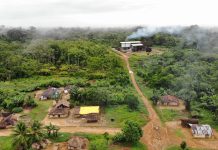Top: A consignment of ammonium nitrate is seen scattered from the accident spot in Small Bomi, Sinje, Grand Cape Mount County. Picture credit: Philip Zodua
By Varney Karmara
SINJE, Cape Mount – A Bea Mountain truck carrying 26 metric tons of ammonium nitrate, which has caused some of the deadliest explosions in human history, crashed by a roadside in Sinje, Grand Cape Mount County in the early hours of last Saturday.
“Early Saturday morning, between 6 am [and] 7 am, we heard a loud sound as if a bomb had exploded. The sound was fearful, and everyone was warned to stay away from the chemicals which felt from the white truck,” said Mohammed Kawah, a resident of Small Bomi, where the accident occurred.
“The sound was so heavy to the extent that we started pushing everyone away from the truck,” Kawah added.
The two men were injured in the accident, eyewitnesses told The DayLight. Raymond S, the driver of the vehicle, was critically wounded and is receiving treatment at the St. Timothy Hospital in Robertsport, the townspeople said. Rescuers had to use another Bea Mountain vehicle to pull one of the car’s doors open to get the trapped, wounded driver out of the damaged truck.
The truck, marked “TR-007,” was transporting the chemicals from Buchanan, Grand Bassa County to Bea Mountain’s industrial goldmine in Kinjor, Garwula District. Minutes after the accident, the company dispatched a team of workers from its chemical department, who teamed up with experts from the Environmental Protection Agency (EPA) to clear the scene of the accident. The team revisited the site once more after this reporter arrived there.
“They came and sprinkled water to the area where the chemical wasted on the ground and warned us not to go around there,” Boimah Kiadii, Town Chief of Small Bomi, told this reporter. “They also advised us not to make any fire around there.
“They told us that the chemical is not bad, but they also warned us not to go close to it, and this made us worry about our safety,” Kiadii said, adding that Bea Mountain distributed 10 bags of kg rice among villagers.
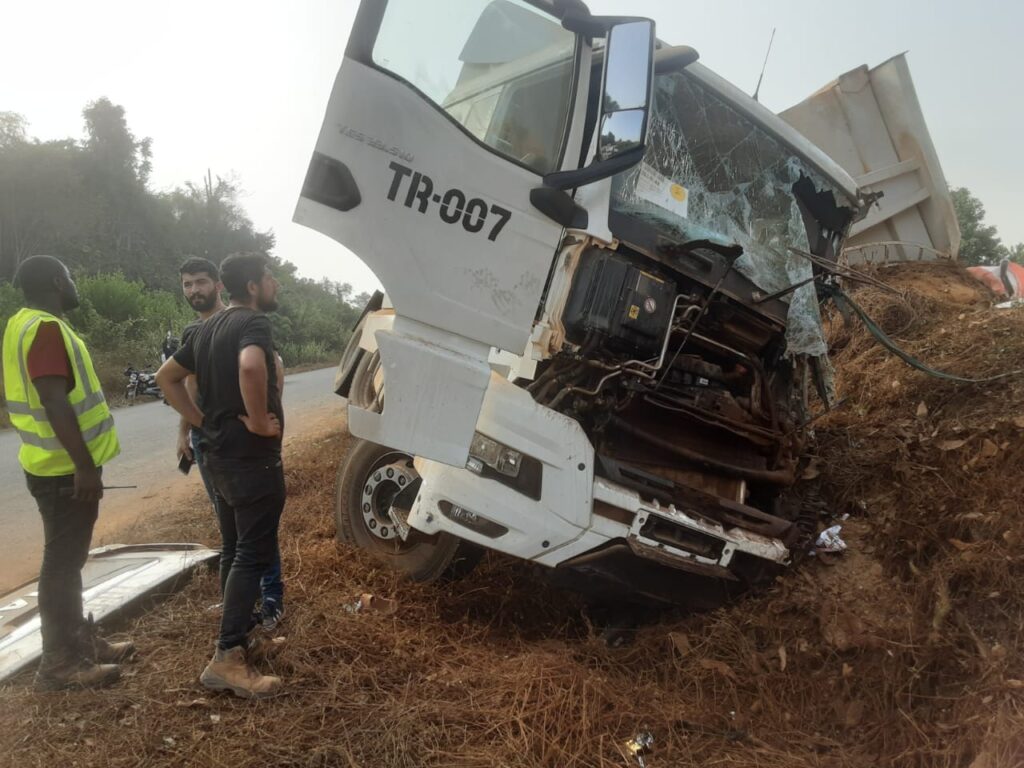
The ammonium nitrate was part of a 5,000-metric-ton consignment of the chemical whose shipment into the country the government approved earlier this year, official records show. The injured driver was trained in the handling of dangerous substances, the fatal transport approved and the vehicle licensed by the EPA in line with environmental regulations and guidelines.
Ammonium nitrate is a white sparkling solid chemical that consists of ions of ammonium and nitrate and is used to produce high yield explosives and as a fertilizer. When coming in contact with direct heat, extreme sunray, or fire, ammonium nitrate can be very dangerous. It poses health, safety, and environmental risks. It can cause harm when swallowed, lead to eye irritation, produce toxic gas when mixed with acid, intensify the fire, and ignite an explosion when heated under confinement.
This is the second time Bea Mountain, owned by Turkish billionaire Nazif Günal, is appearing in the news for its controversial handling of ammonium nitrate. In 2020, the company imported 4,000 metric tons of the chemical without the approval of the EPA. That importation breached the EPA’s requirements for the shipment of chemical substances. The law prescribes a 20-year prison term, a fine of US$50,000 for a violator, or both. It is not clear whether Bea Mountain was fined at the time.
In August last year, residents of Kinjor saw their complaint against European financiers of Bea Mountain’s New Liberty Goldmine accepted over allegations of water pollution and failure to live up to the agreement it has with affected communities. The company signed a 25-year mineral development agreement with the government of Liberia in 2001 for the extraction of gold in the Garwula and Gola Konneh districts. In 2013, the deal was extended by another 25 years, taking it to 2038.
Efforts to reach Bea Mountain on the matter also did not materialize, as we were unable to get the exact location of the company’s headquarters in Monrovia and on Bushrod Island.
The EPA said in a news conference on Tuesday no residual of the chemical remained at the site of the crash. “No water sources were observed within [a] 10-meter radius of the area and the incident is unlikely to cause any adverse environmental or health risk to the residents of the Small Bomi community,” said Prof. Wilson Tarpeh, the executive director of the agency.
Ammonium nitrate explosions have led to an array of disasters across the world, among them the Beirut Explosion of 2020 that killed 200 people, the 1921 Oppau explosion in which 500-600 people died, the 1947 Texas City disaster that killed 583 people, the 2015 Tianjin Explosions that killed 173 people.
Despite the danger it poses, some countries still use the substance, including the United States. Countries in Eastern and Western Europe are the largest consumers of the commodity, consuming 53 percent in 2019, according to British information provider IHS Markit. Germany, the United Kingdom, Australia, Ireland, Pakistan, and Turkey are among the countries that have banned the use of ammonia nitrate both as a fertilizer and explosive.
Liberia has not banned ammonium nitrates, with Bea Mountain using the chemical for its operations, contributing US$9,583,127 to the national budget or 12 percent of the revenue generated by the country’s extractive sector in the 2018/2019 fiscal year, according to the Liberia Extractive Industries Transparency Imitative (LEITI).
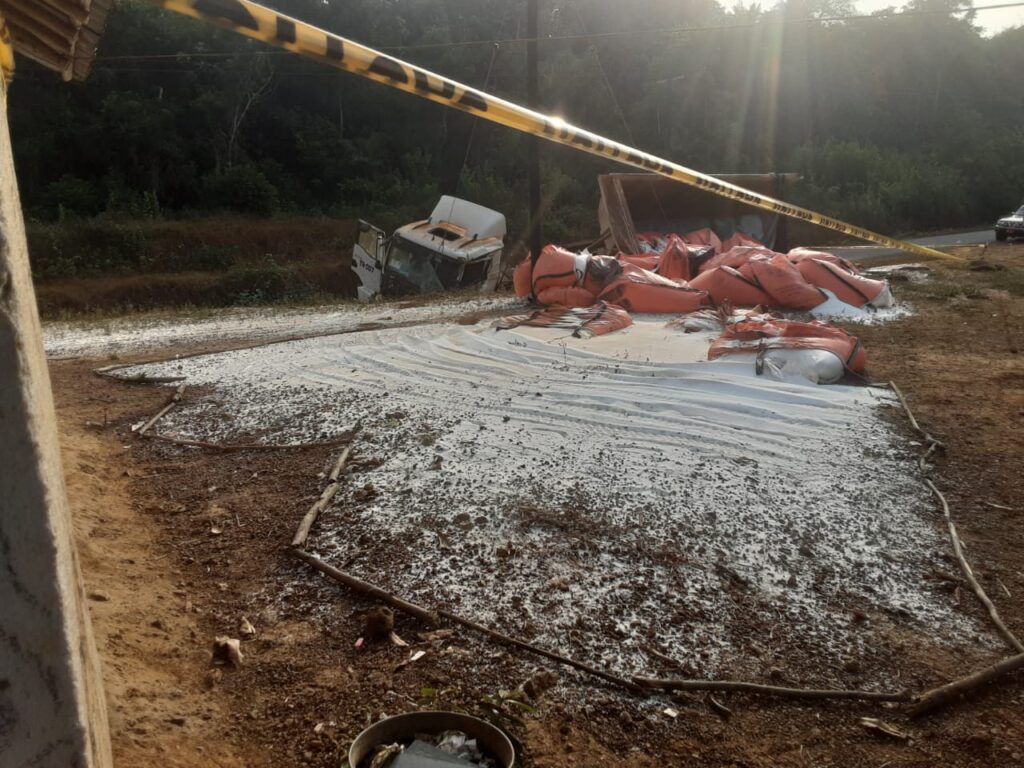
Foundation for Community Initiatives (FCI) funded this story. The DayLight maintained editorial independence over its content.

